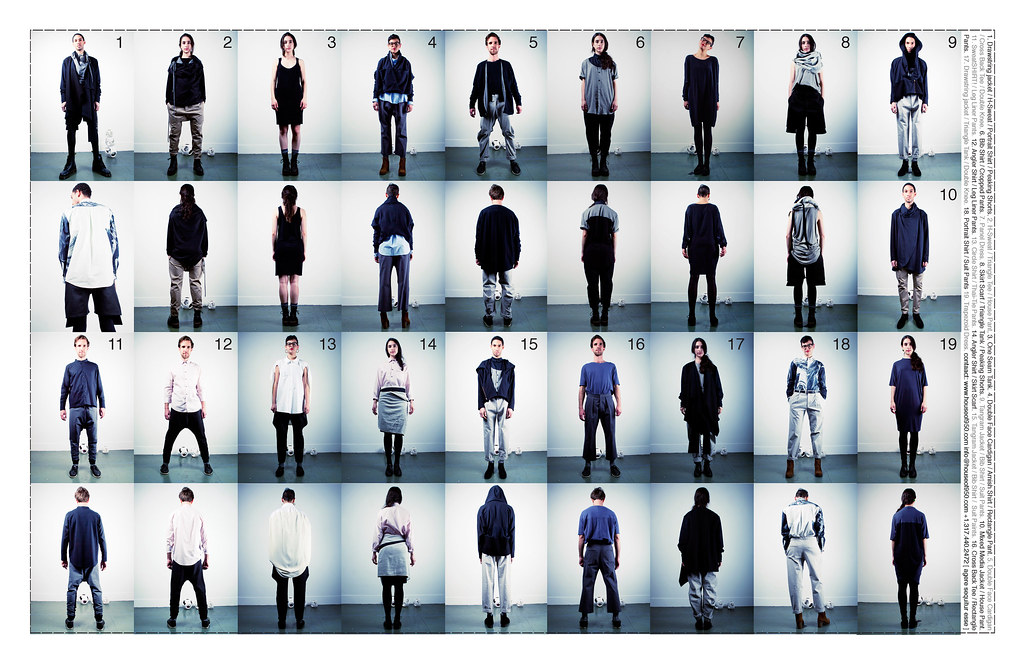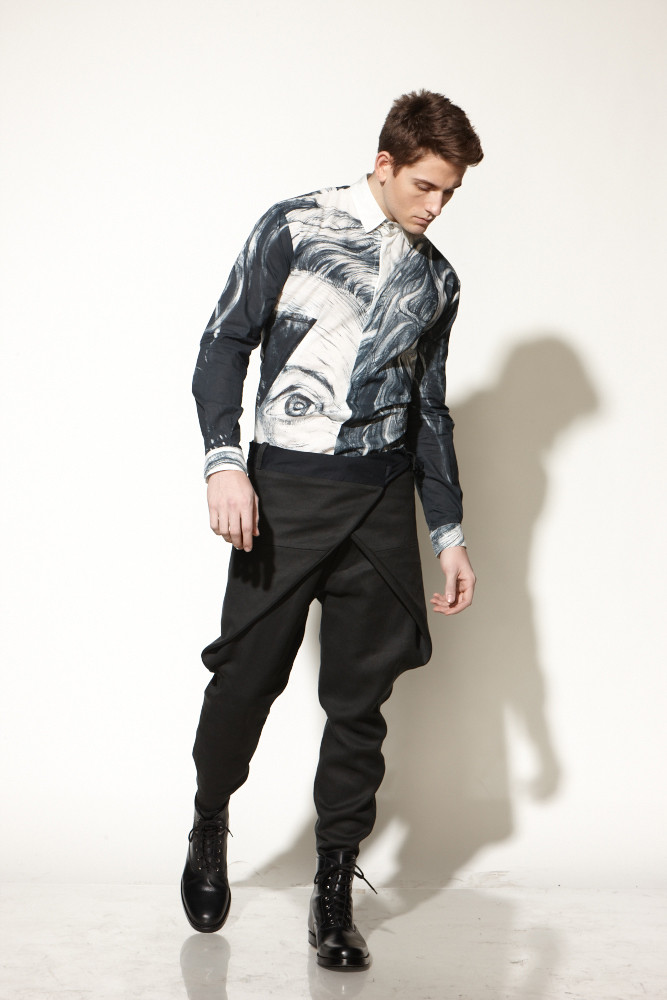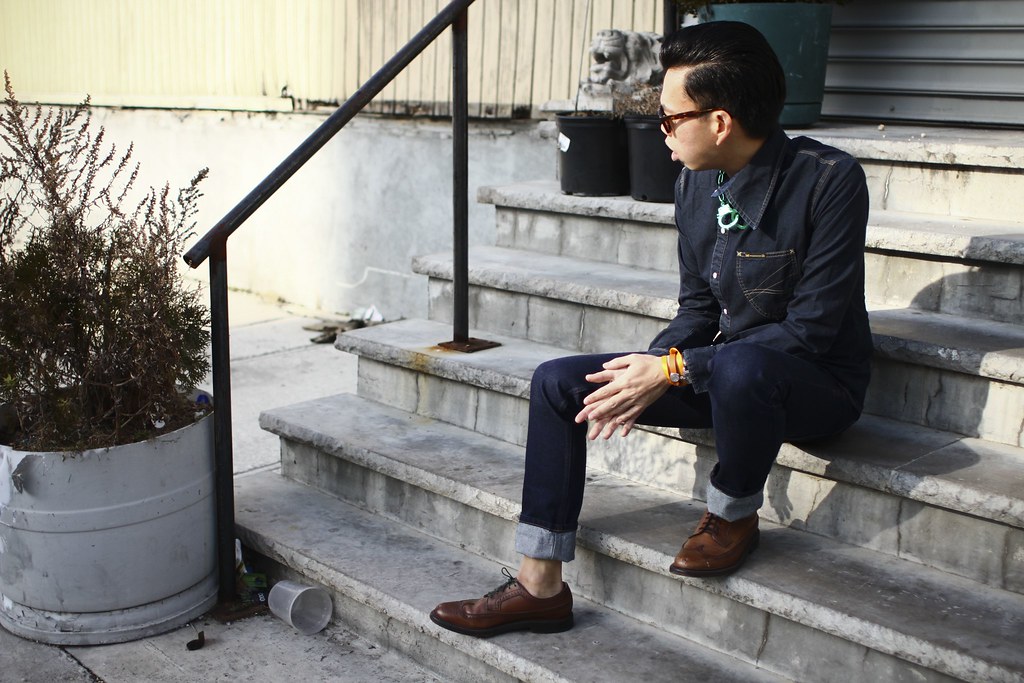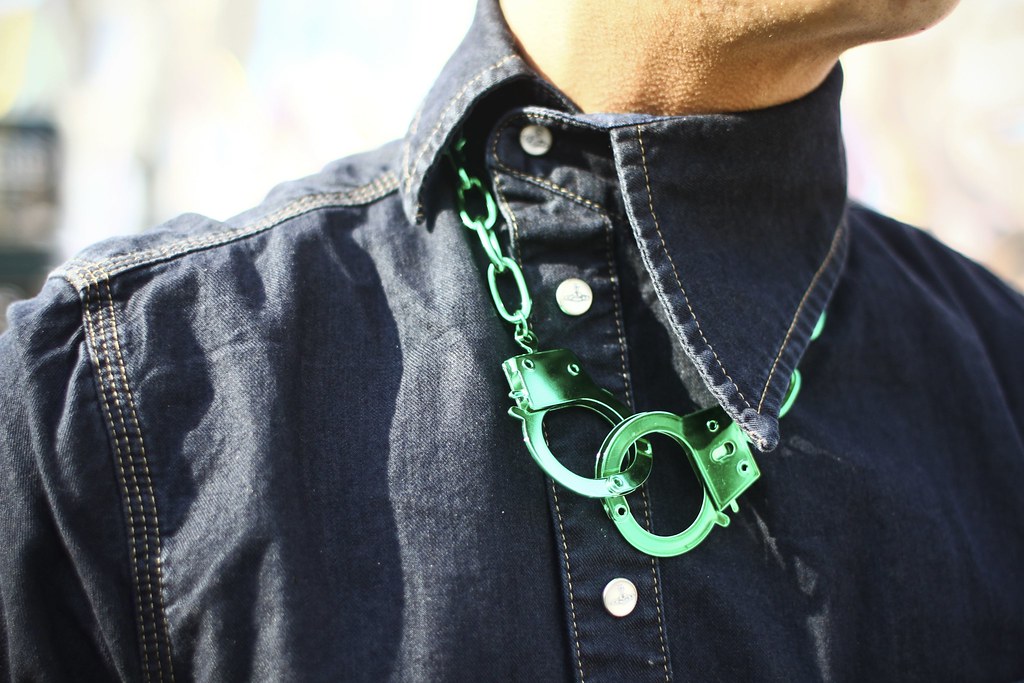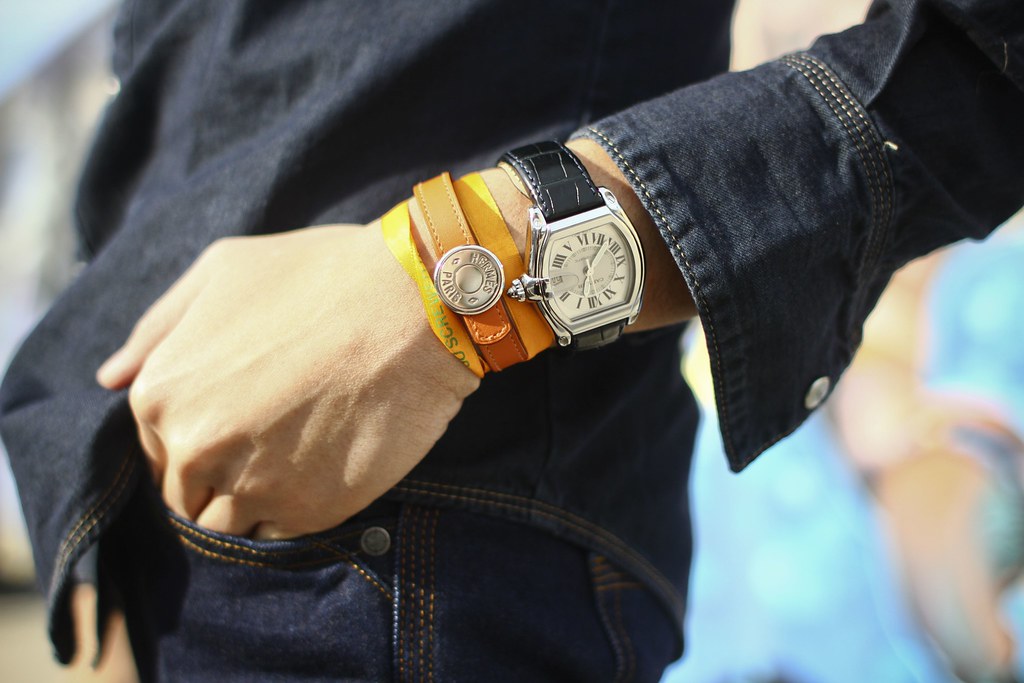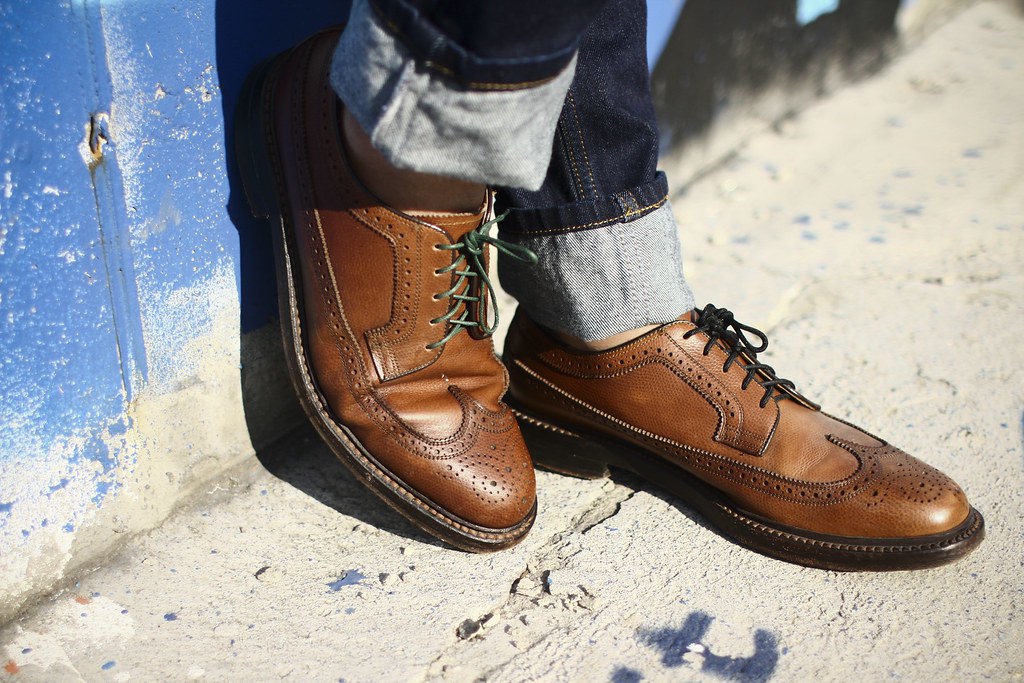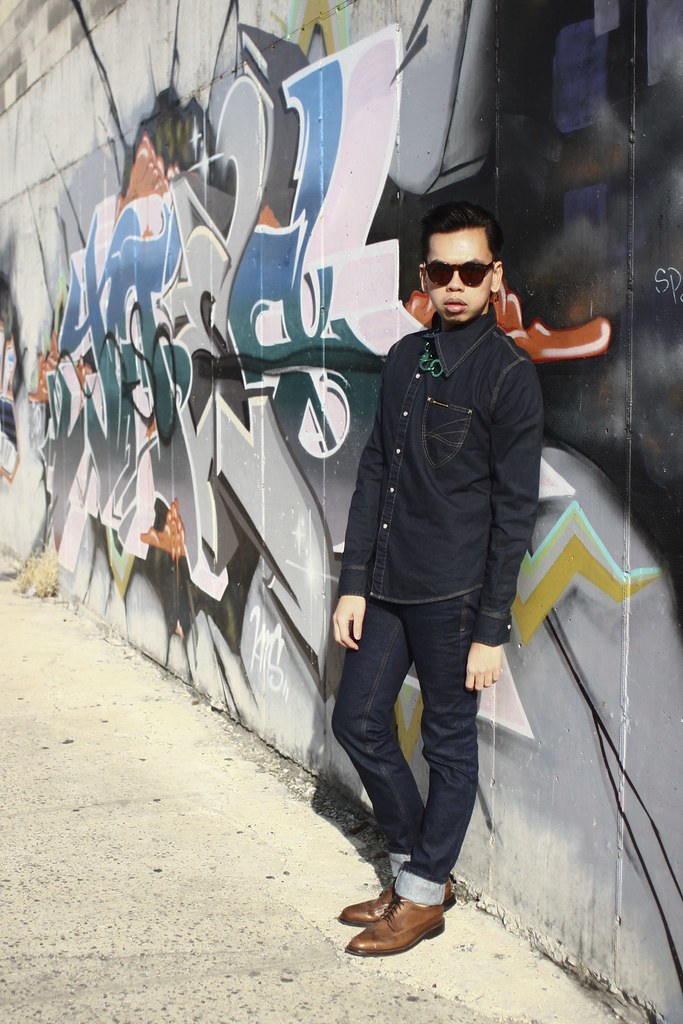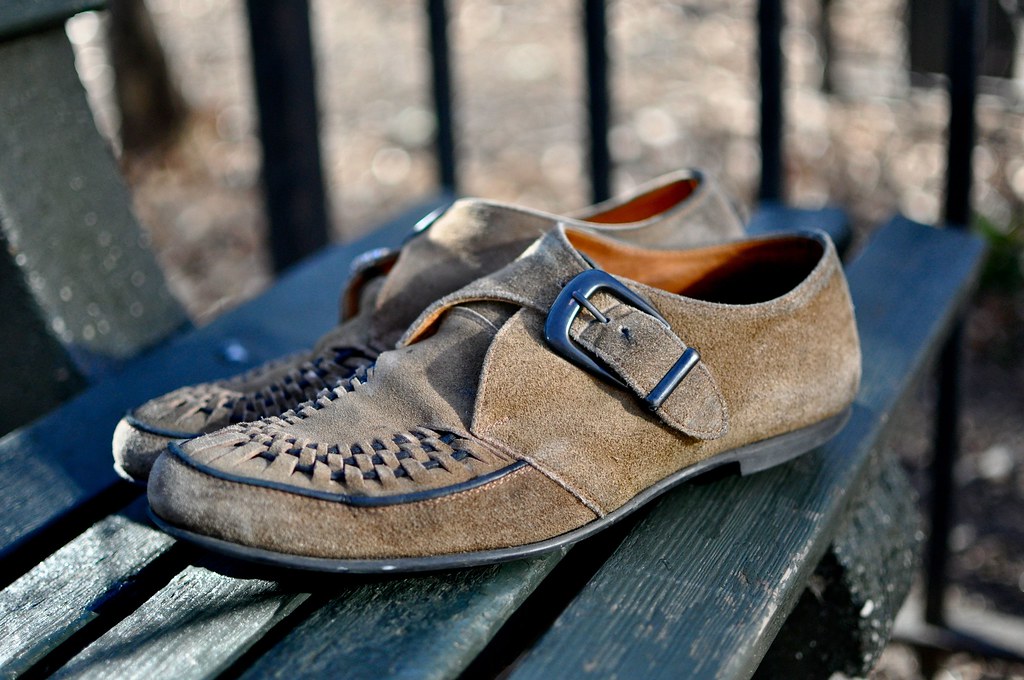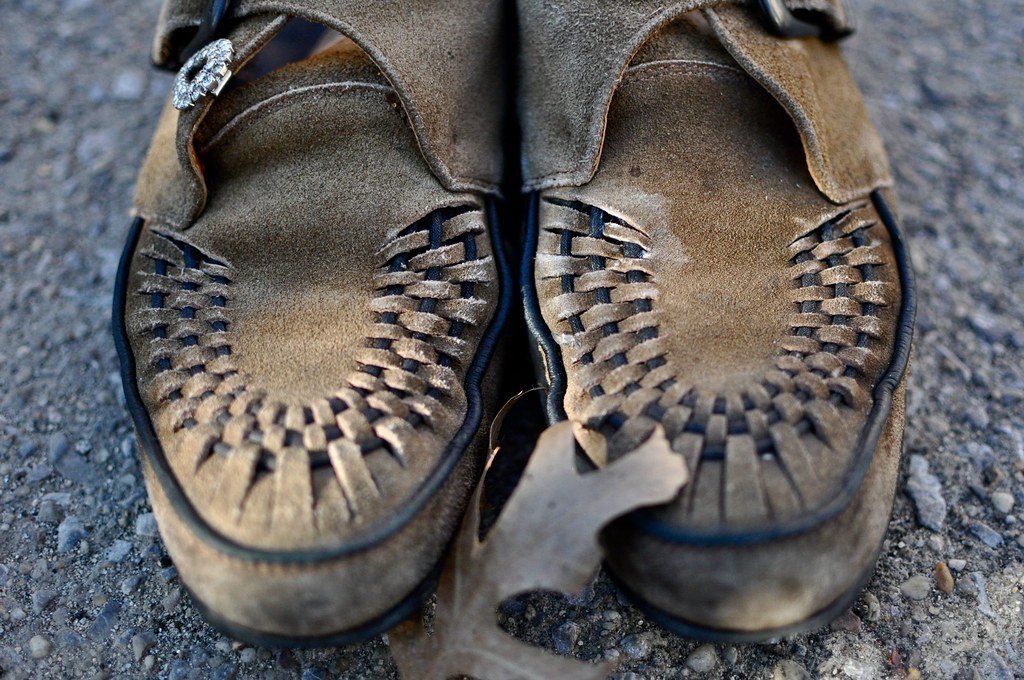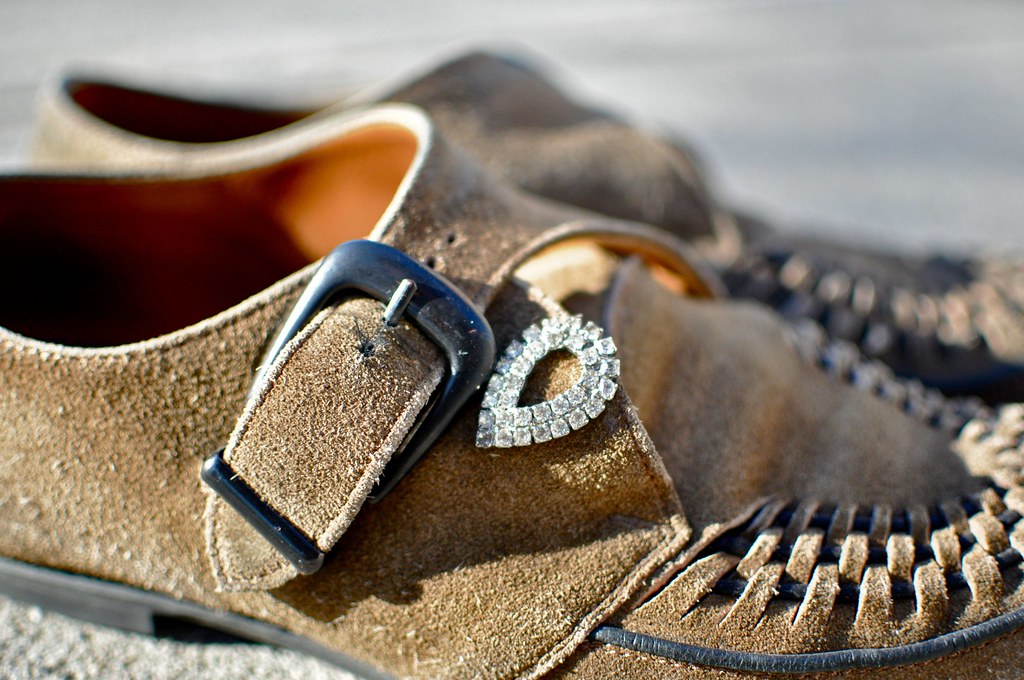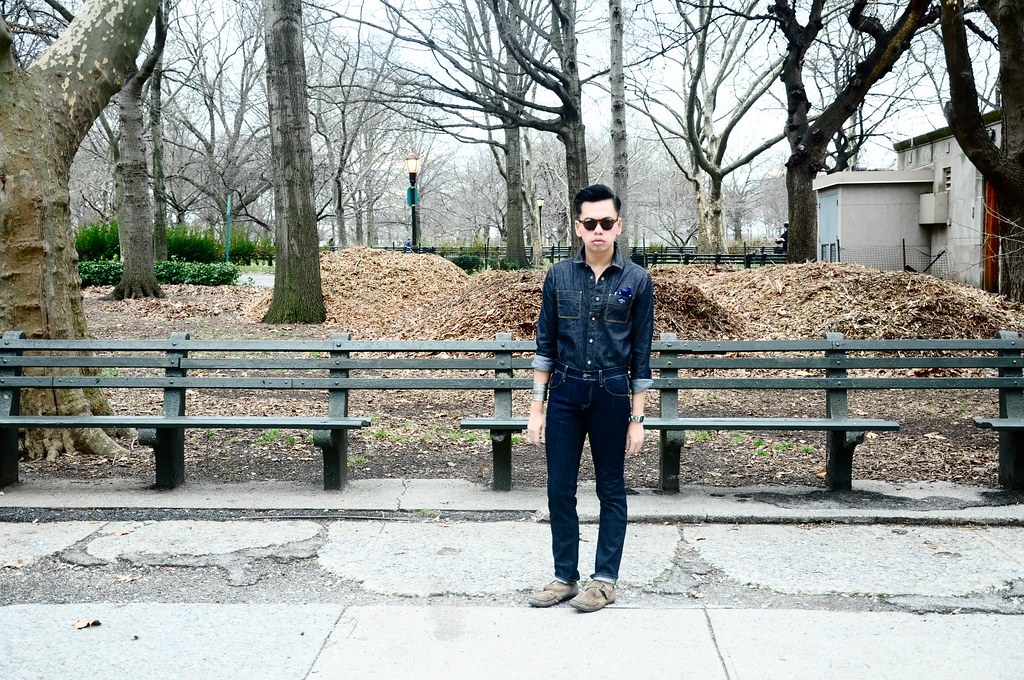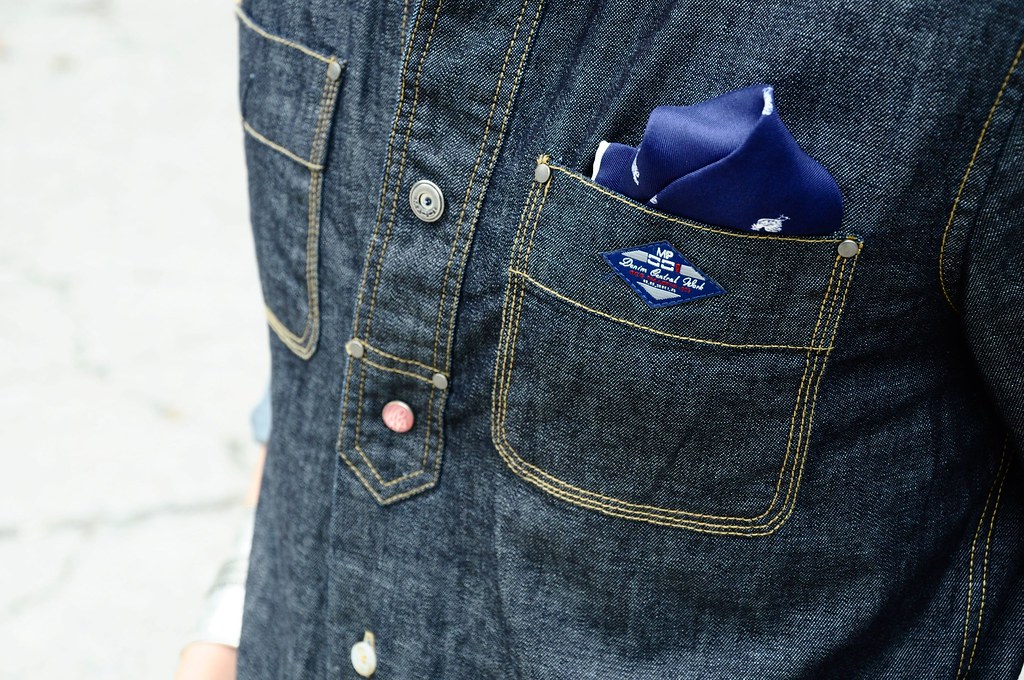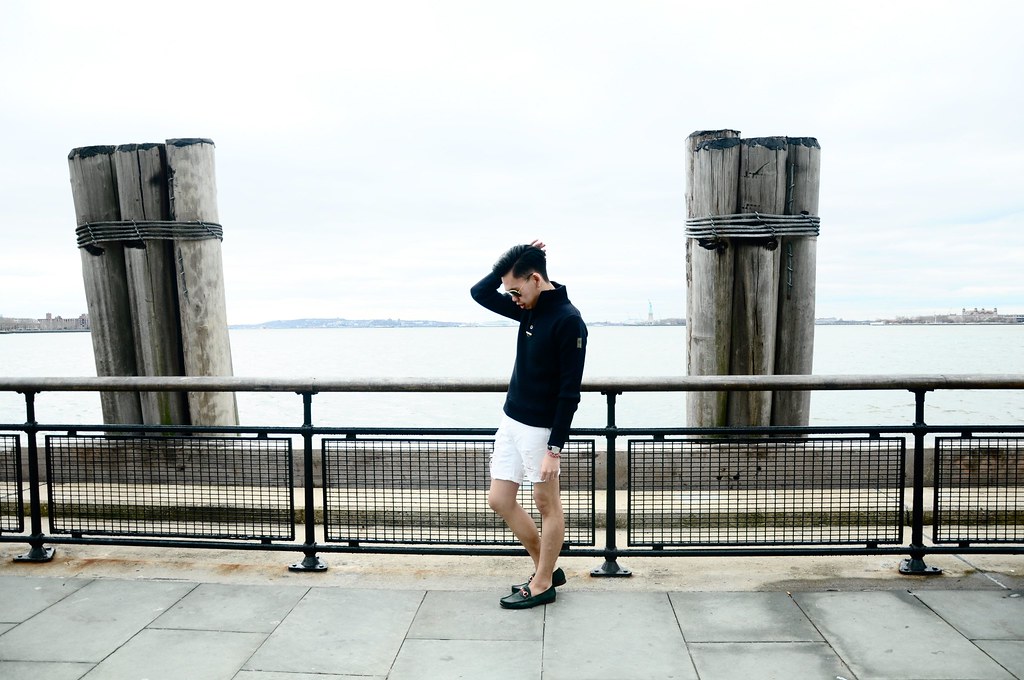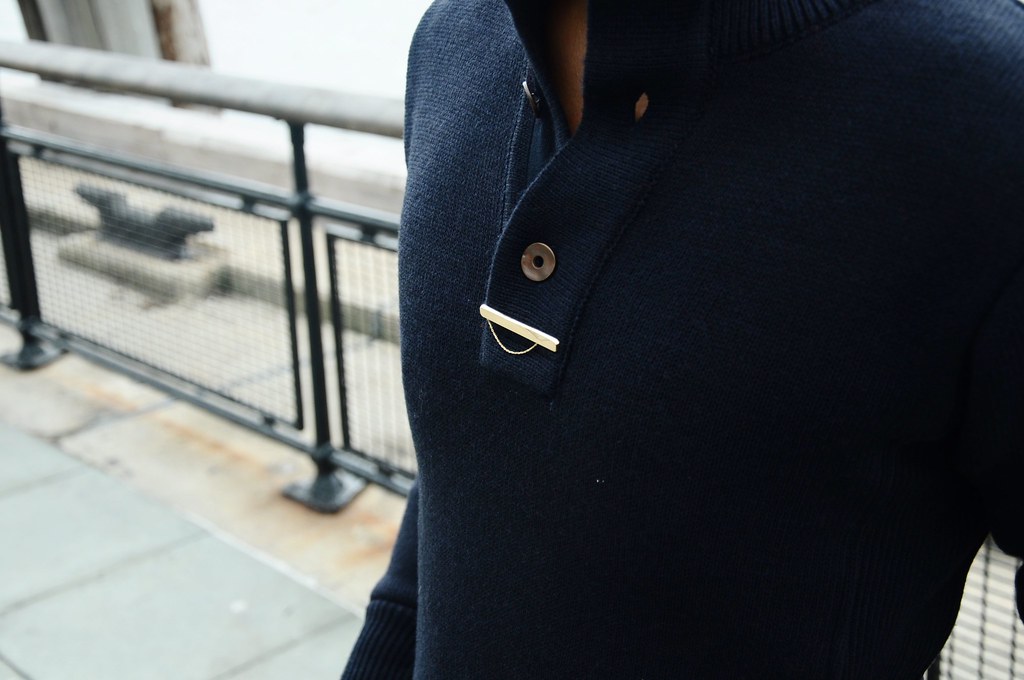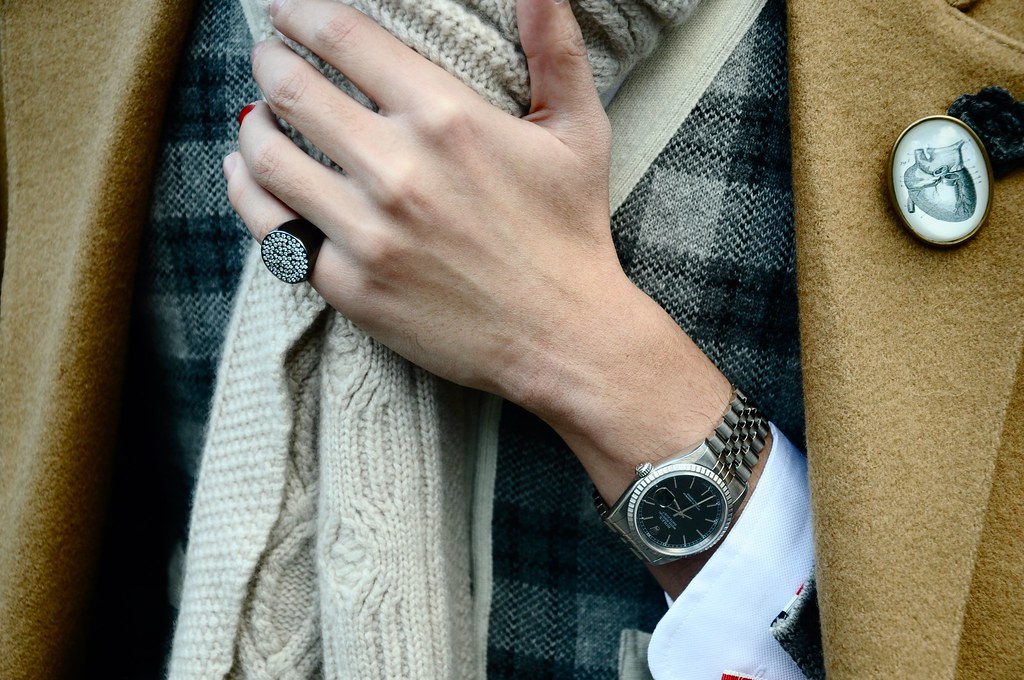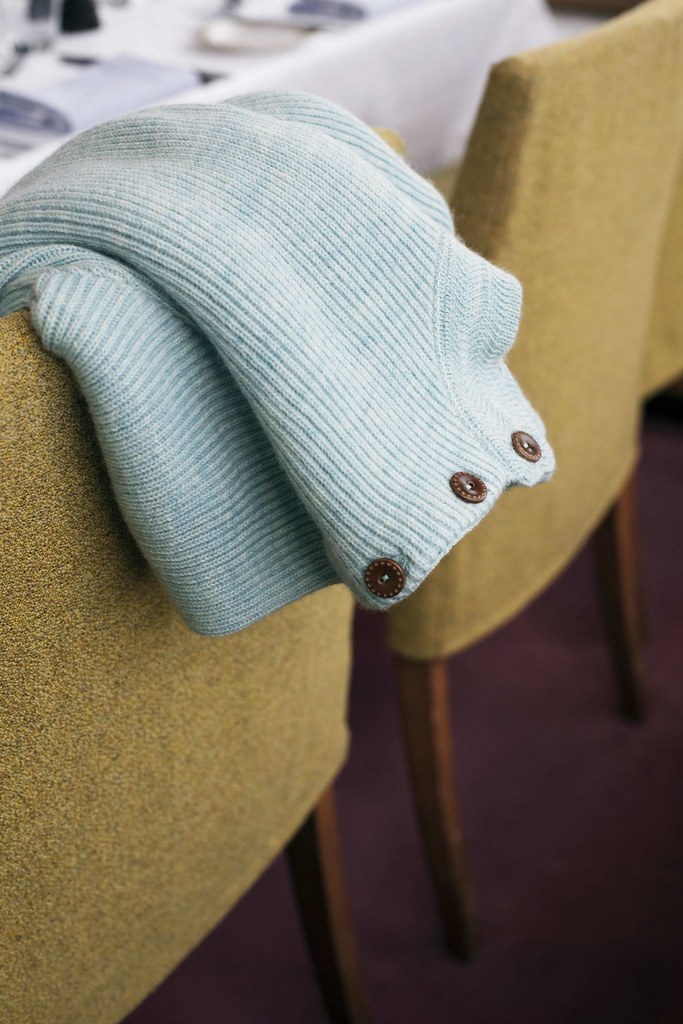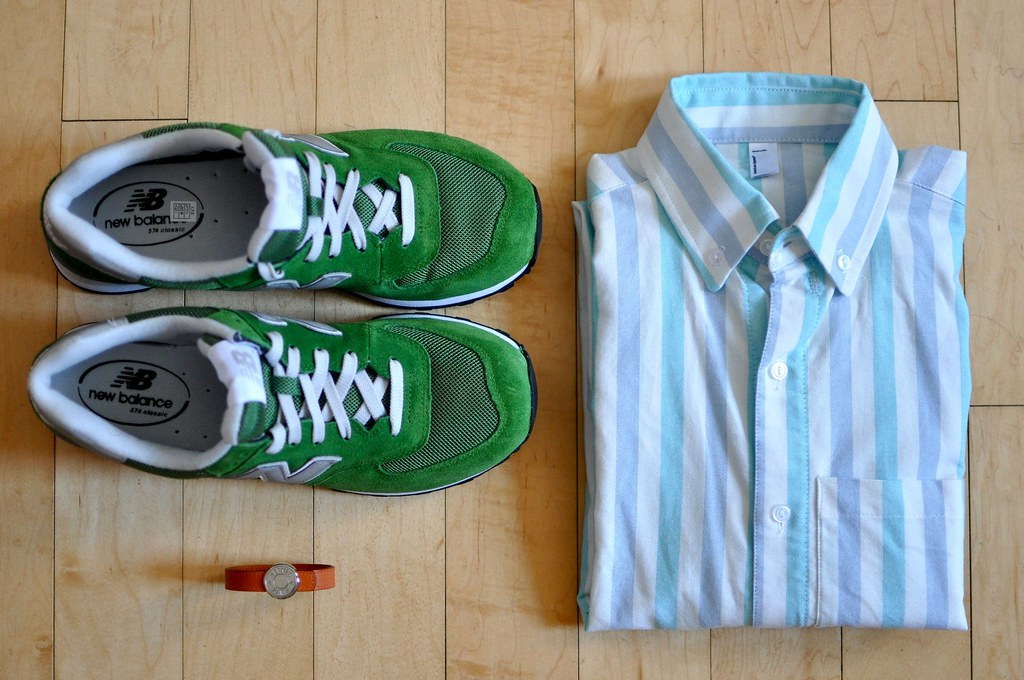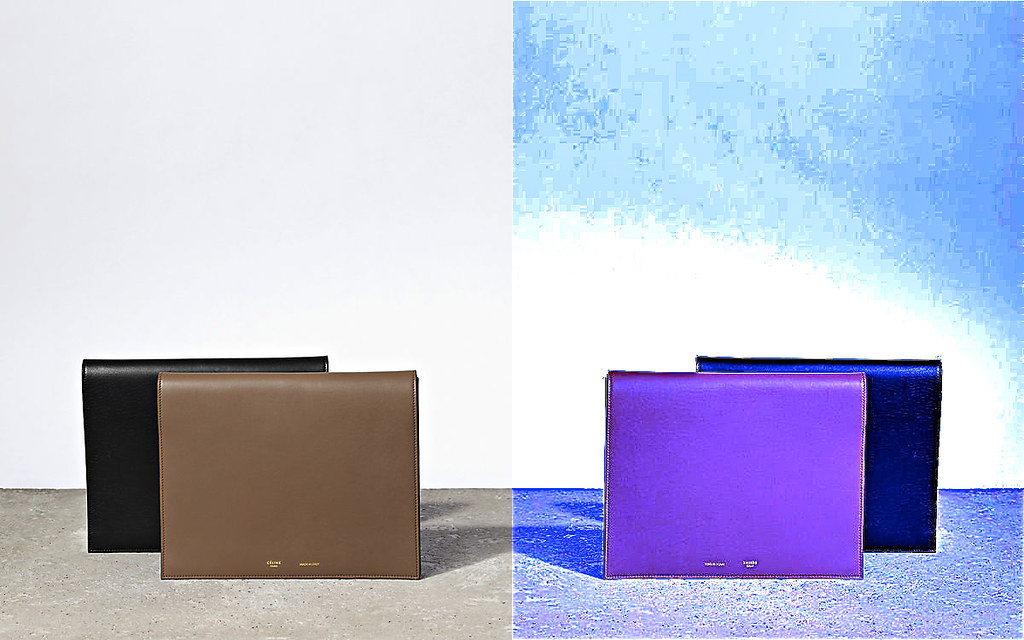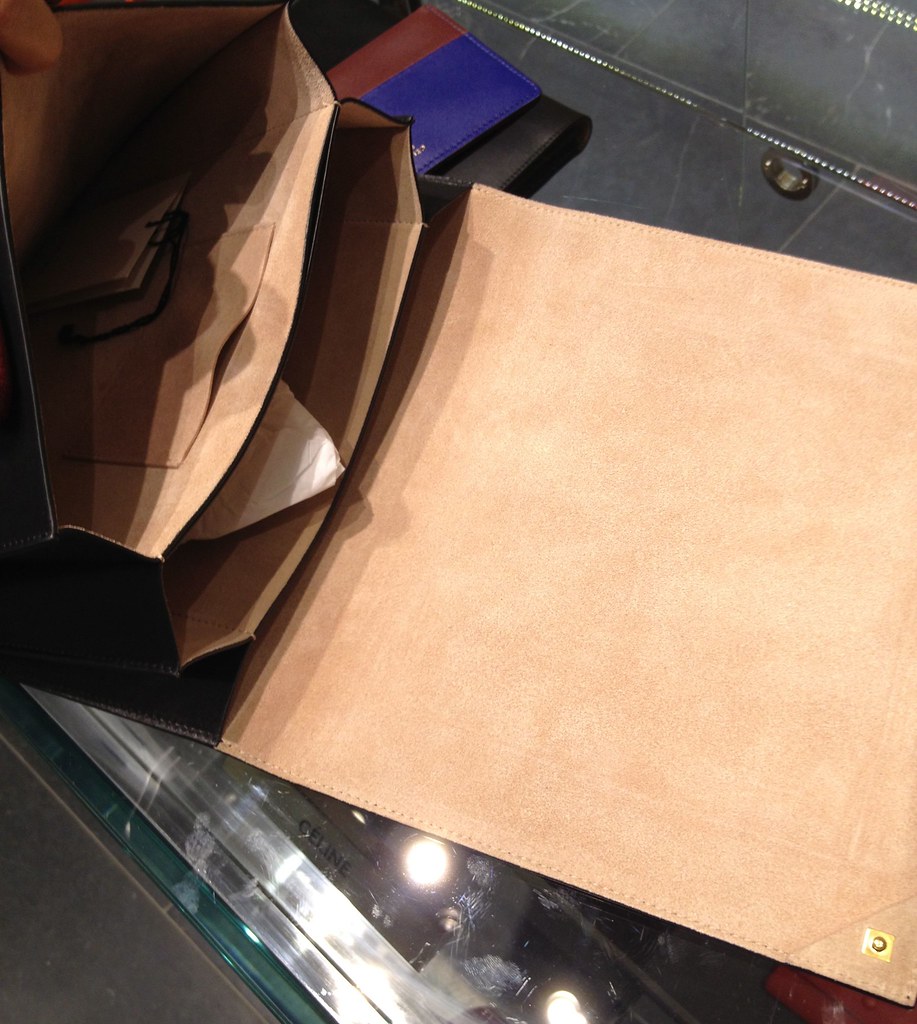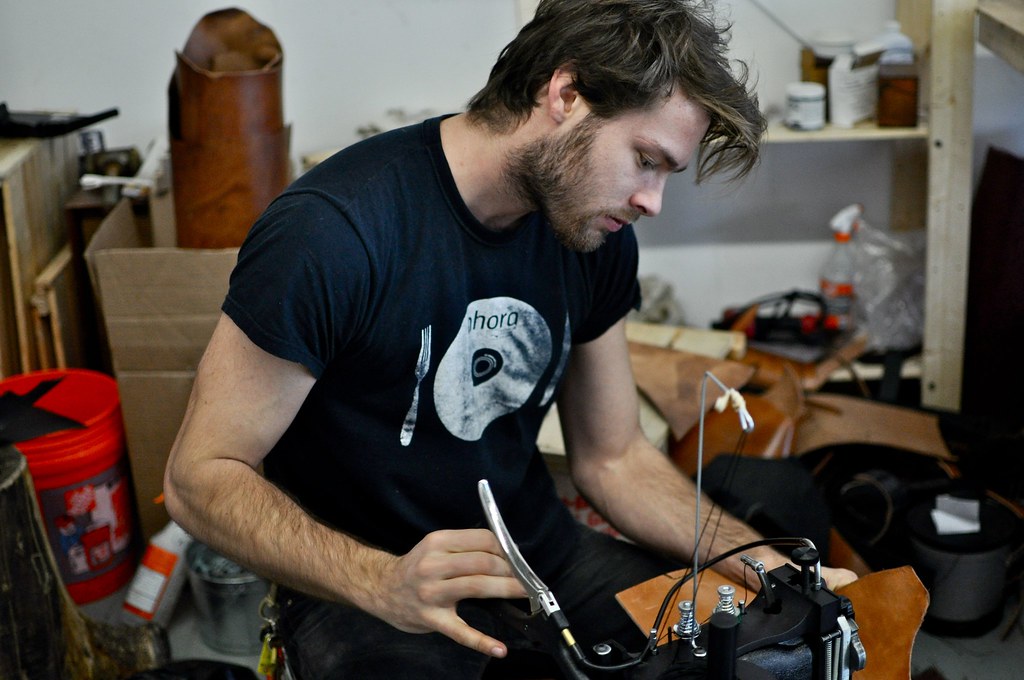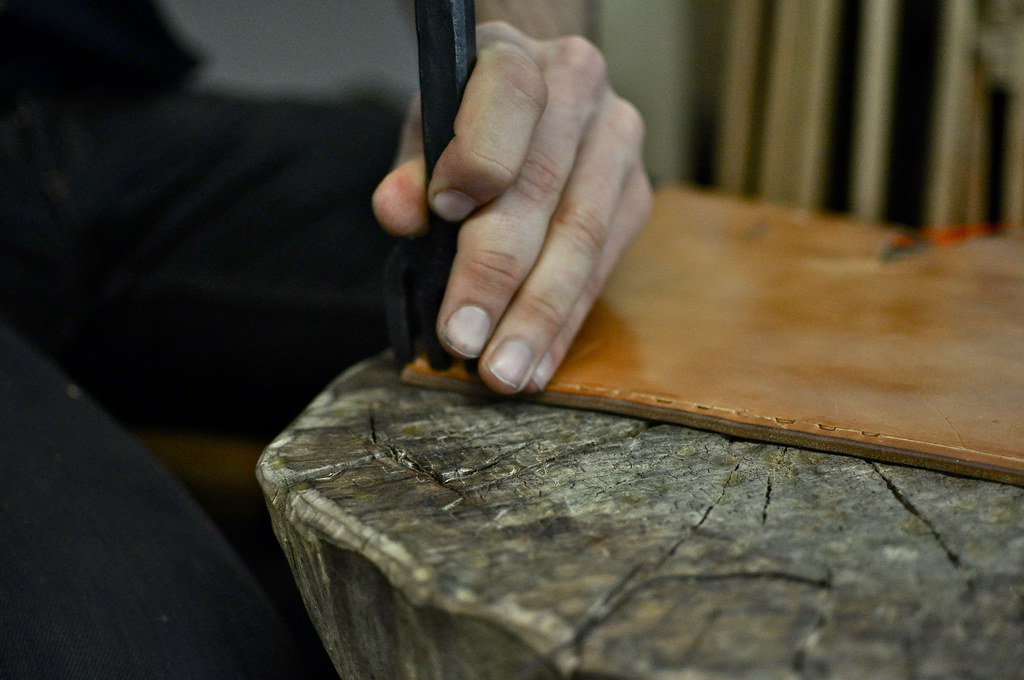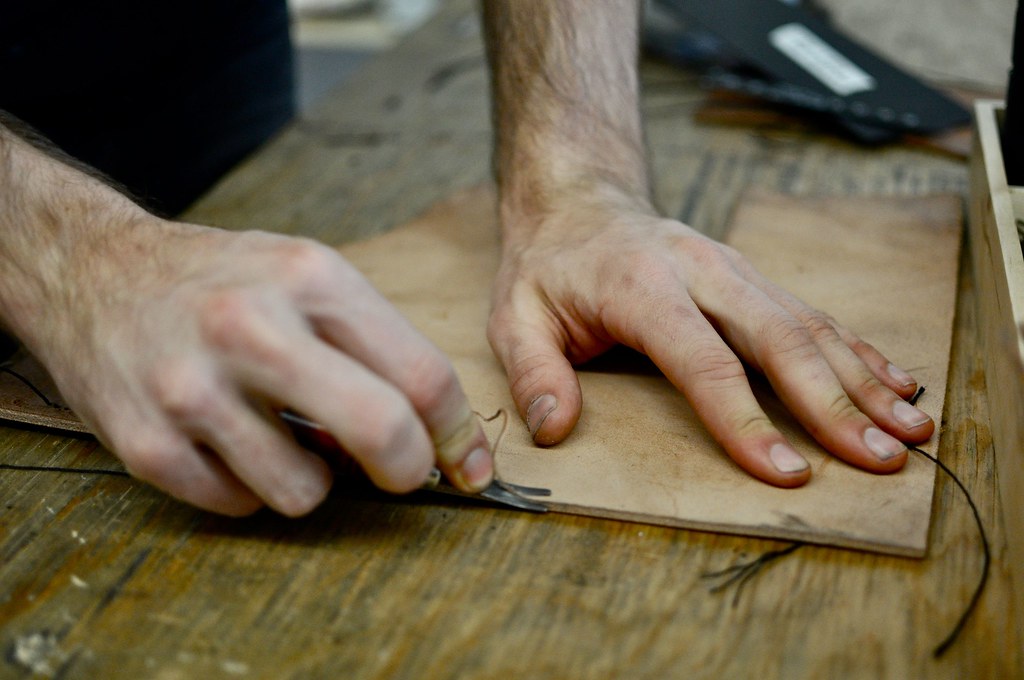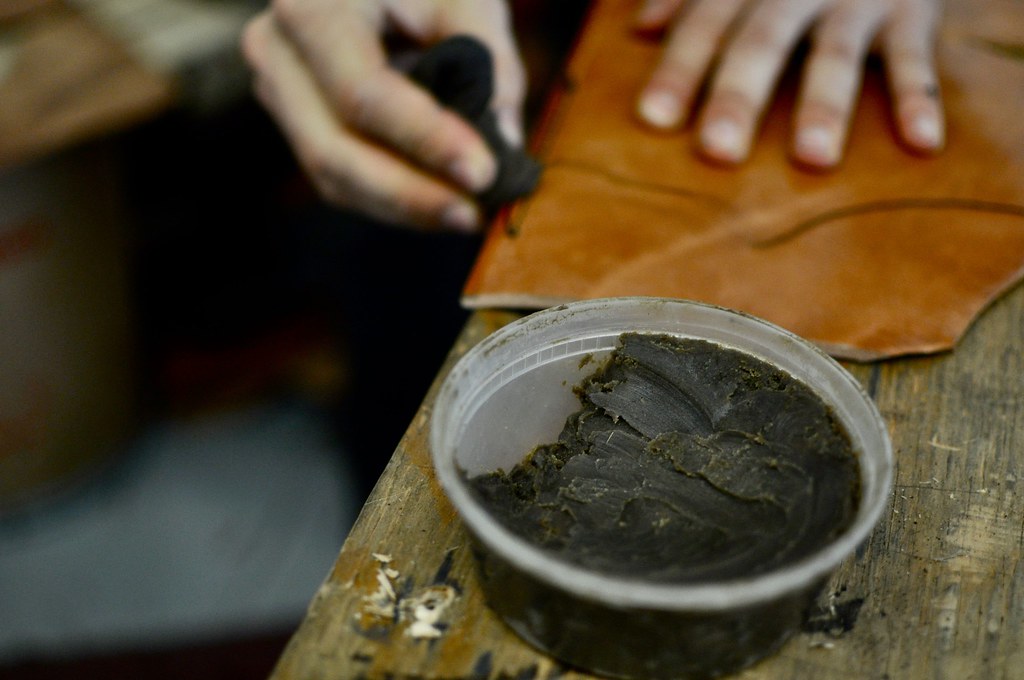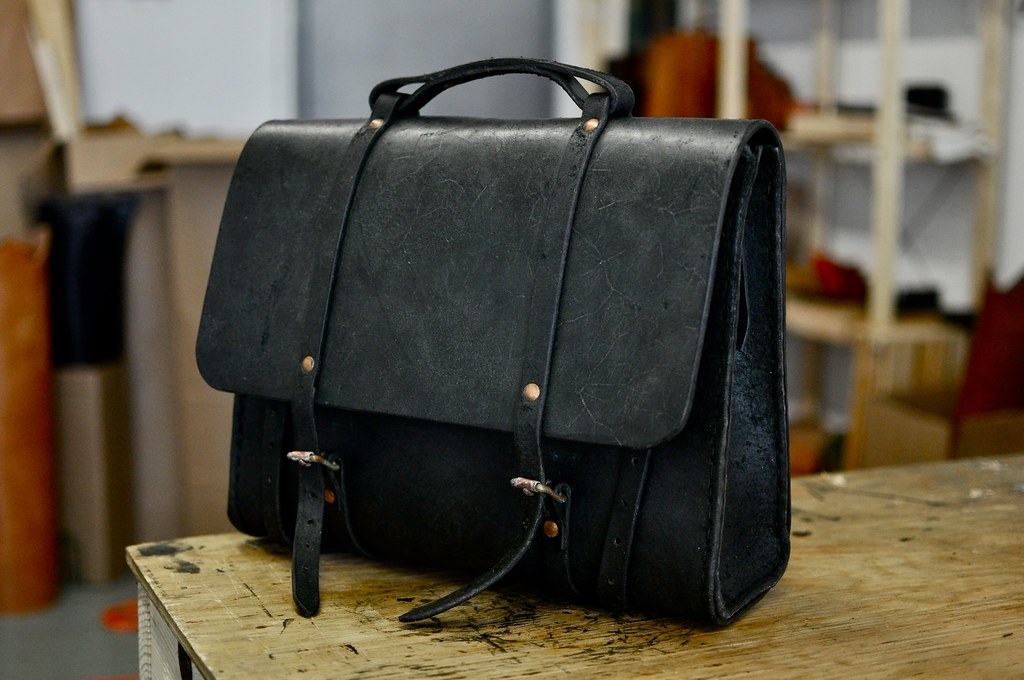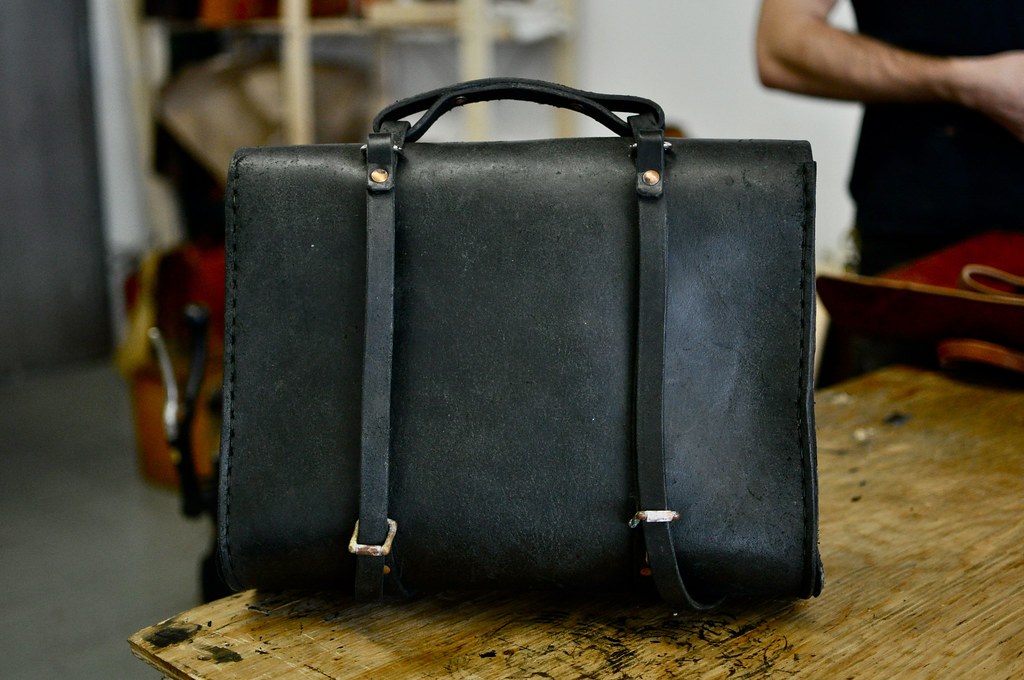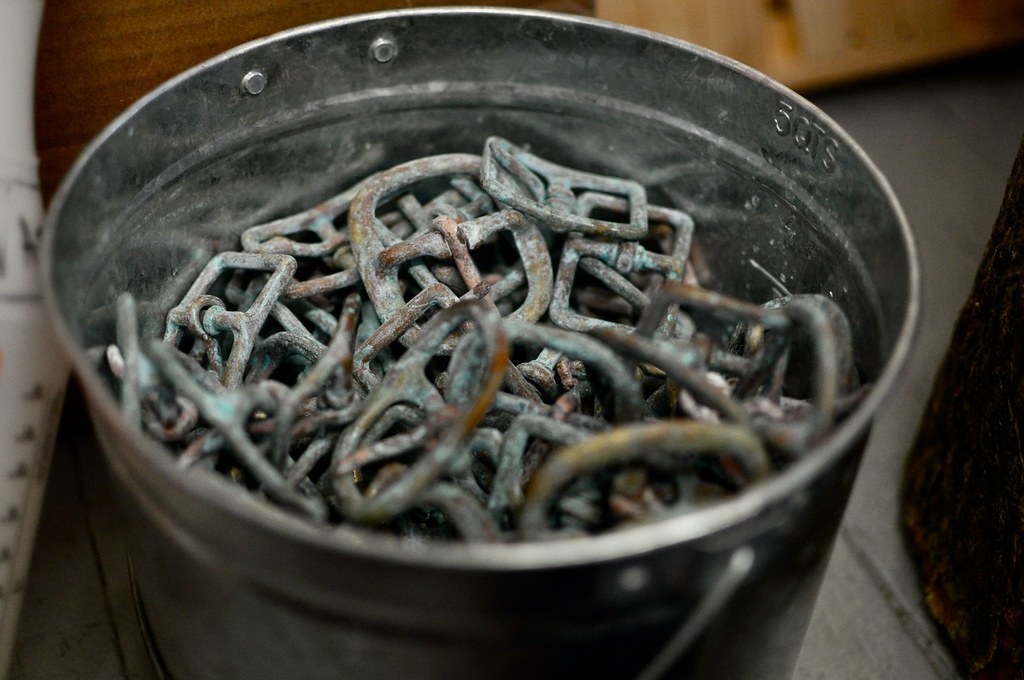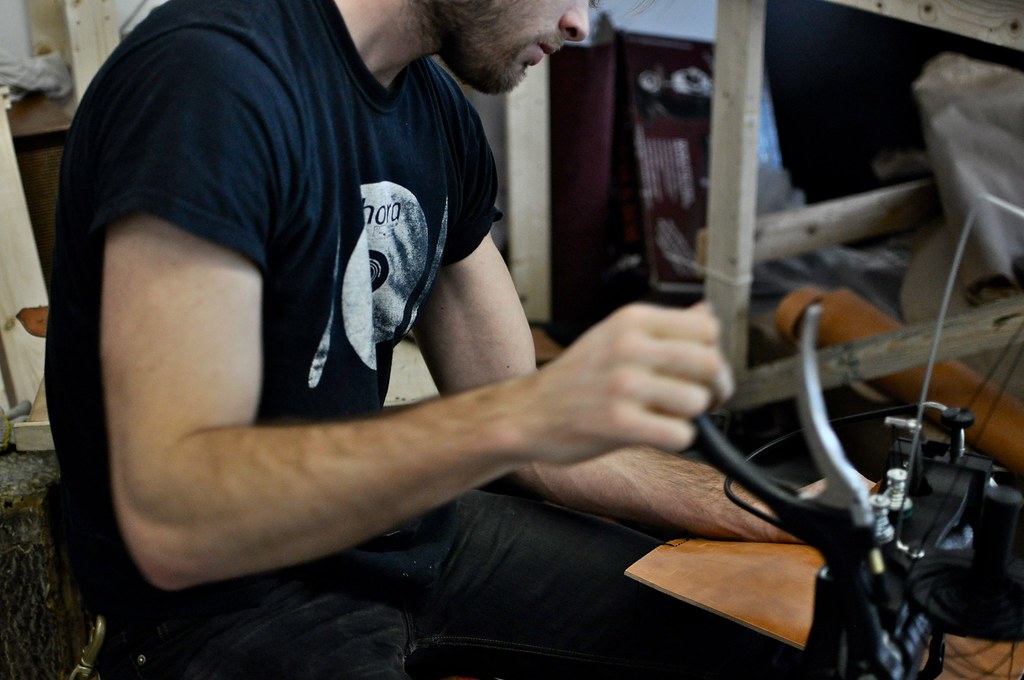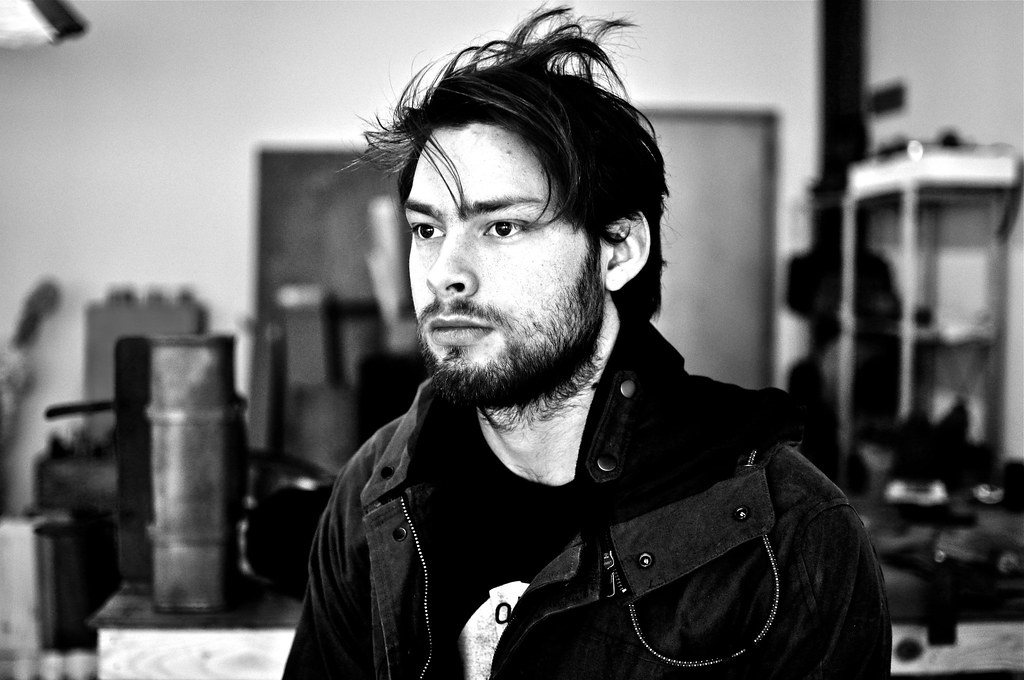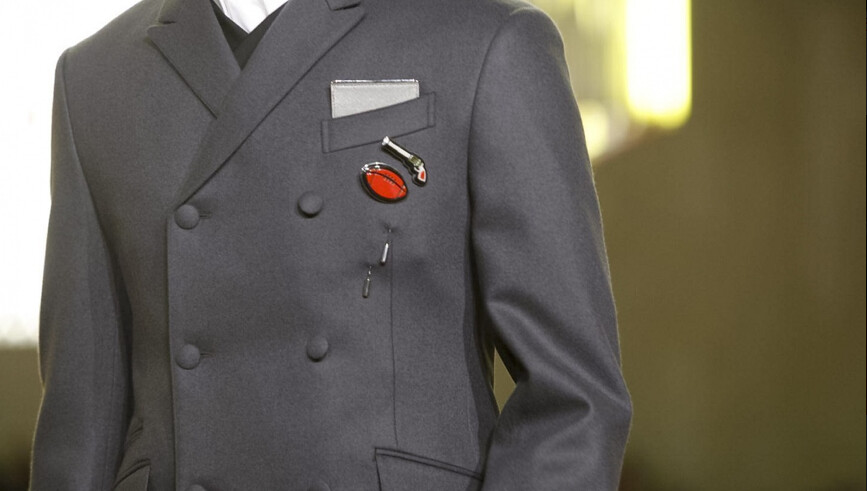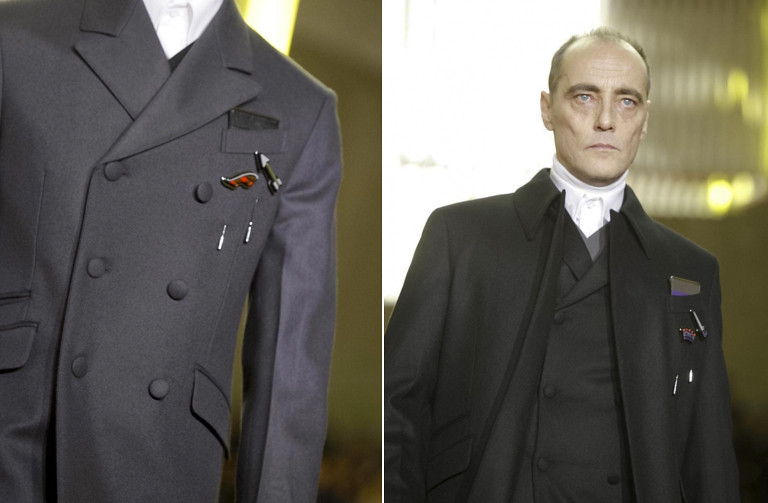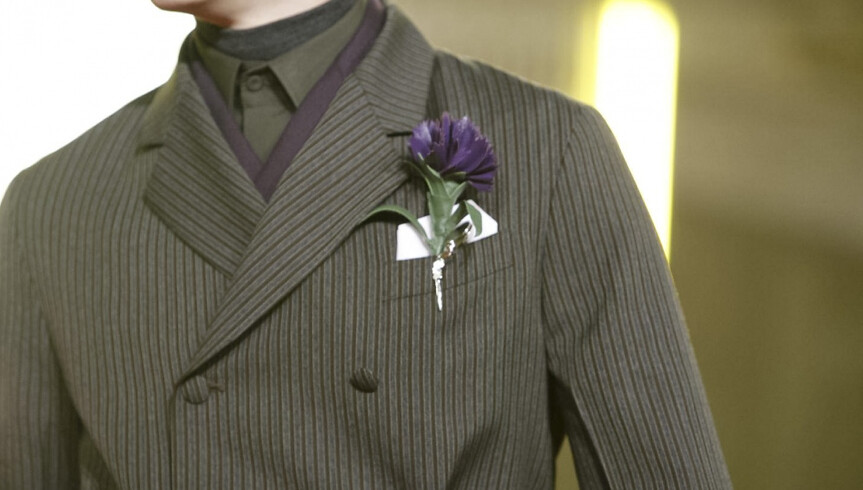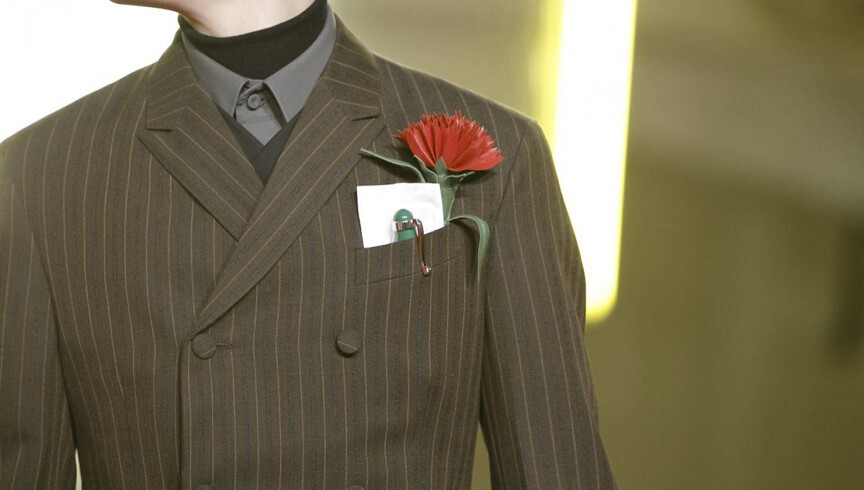A few weeks ago, I met this guy at a party at the Soho Grand, a bag designer, and he pulled out his phone and he showed me his stuff, and it was minimal and masculine and elegant---New York is great just like that, filled with brilliant, creative people who make beautiful things. Last week, I paid a visit to Will Lisak, the designer, and while he let me watch him craft a custom-order for a client, we had a little chat about his line
ETWAS.
the ETWAS Standard # 1, the company's first bag (photograph via ETWAS)
The bags are elegant and minimal and simply crafted out of thick, sturdy leather. They are certainly heavy, and though the brand has plans of doing bags in lighter, thinner leather, there is a charm in carrying the rugged, thick-skin leather bags that only become more beautiful with age.
Tell us about ETWAS. What do you make, and what makes it different?
ETWAS is premised on the idea that the design of systems has more impact than just designing products. We want to make graceful objects in an equally graceful way, using means of production to reflect and manifest the aesthetic of our customers. When you buy an ETWAS bag you are not only conveying your sentiments through image, your aesthetic will is acting upon the world in more tangible ways.
ETWAS' designer, Will Lisak, at work
What made you shift into crafting bags after working in graphics and illustration?
I never wanted to make fake things. I decided I needed to pursue a project where I had total control and could design every step of the process. It was impossible for me then to tell a beautiful story via the medium of an ugly publishing industry. I'm not creating stories with vast and ephemeral worlds anymore as I was with illustration, but I am creating a small world and small narrative that is very tangible.
Will walked me through a few of the processes involved in making a bag. Holes are pre-punched into the leather before hand-sewing.
The corners on the thick leather are shaved off and rounded for a better hand-feel.
Lisak uses his own vegetable-based recipe to burnish and condition the leather.
Holes on straps are hand-punched as well.
What inspires you?
People. People with inventive ways of living that allow them to enjoy their lives to the fullest. They are the greatest designers.
my favorite piece, the ETWAS light pack in the special rough out black wax leather
The briefcase can be converted into a backpack by simply untucking the shoulder straps from under the flap.
Your bags are simply made and free of embellishments. What are your views on minimalism and design?
I think for what we are doing it is necessary. We are an egalitarian process, our workers are paid well, we are comfortable, but no one is getting rich. It's not a decadent process. It is empowering to the worker, and on the consumer end it is a bit rugged. Our customers are not afraid to get their hands dirty. So it's a bit socialist in that way I guess. There's not much decadence about it. The design needs to be clean then to be honest, and reflect the values of all involved. Not that I'm against decadence. It's just not suitable for this project.
a tote and the toolbag, which was originally designed to carry tools on vehicles, but has captured the fancy of many a menswear-loving woman
hardware finished with a hand-aged patina
I came across this quote on your website: "Consider not only the things we are making, but the things we are destroying." Tell us about your project, and why you choose to work this way.
I think I may have touched on this in the earlier questions, but basically we are interested in creating the most beautiful thing, and I feel it's cheating a bit when you make a beautiful product in an ugly system, which is easier, but you are making the world uglier at the same time as you are making something beautiful, so you're stuck. Not having much impact, just moving things around. I want to make the world less distasteful.
a sketch of a custom-designed duffel bag for a Canadian client
What are your plans for the future?
Our major plan is take advantage of our means of production in another way--because we are manufacturing ourselves we don't have to place large factory orders, and therefore do not have to standardize so much.
trying out a new mechanical (electricity-free) hand-sewing machine for the possibility of offering a line of machine-sewn bags at a lower price point
I want to make a line of bags that is scaleable, where customers and stores can alter the dimensions to their liking though an online interface. There is a lot of potential in giving people a little freedom, and no one else is really doing anything like this.
Will Lisak, Williamsburg, 1/11/12



